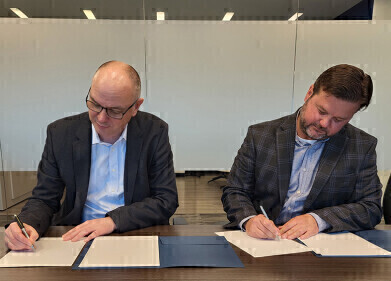Waste Management
Strathclyde collaborates with UK and Japan for advanced nuclear waste solutions
Sep 15 2023
In a groundbreaking initiative, the University of Strathclyde is spearheading research efforts to revolutionise nuclear waste detection and disposal techniques. This ambitious endeavour, generously funded by the United Kingdom and conducted in collaboration with the Japanese government, seeks to bolster the decommissioning of the Sellafield Nuclear Plant in the UK and the cleanup of radioactive debris from the Fukushima nuclear catastrophe in Japan.
Strathclyde has been allocated a portion of the £1 million grant, administered by the Engineering and Physical Sciences Research Council (EPSRC), a vital component of UK Research and Innovation. Leading this pivotal research is Dr. Paul Murray from Strathclyde's Department of Electronic and Electrical Engineering, who will focus on enhancing the identification, protection, retrieval, and disposal of radioactive debris.
The Fukushima Dai-ichi nuclear power plant endured a catastrophic earthquake and tsunami on March 11, 2011, resulting in unprecedented damage, including core meltdowns in its reactors. Since then, intricate operations have been planned to remove the melted fuel, presenting a formidable challenge in characterising nuclear fuel debris, encompassing its detection, safeguarding, retrieval, and safe disposal.
This collaborative research assembles a diverse and multidisciplinary team of experts from the UK and Japan. Partners in this endeavour include Lancaster University, the National Nuclear Laboratory (NNL), Osaka University, the Japan Atomic Energy Agency (JAEA), and Nippon Nuclear Fuel Development Co., Ltd. Together, they will explore the application of hyperspectral imaging (HSI) and other sensor technologies, signal processing, and data fusion to effectively analyse nuclear fuel debris.
Dr. Murray expressed his optimism, stating, "We anticipate that the proposed research will lead to new and highly valuable inspection technology that can support nuclear decommissioning efforts not only in Japan and the UK but also worldwide."
The UK-Japan Civil Nuclear Research program is a collaborative initiative between UK Research and Innovation and the Ministry of Education, Culture, Sports, Science, and Technology (MEXT) in Japan. This marks the first UKRI award under the International Science Partnerships Fund (ISPF), a program launched by Science Minister George Freeman in Japan in December.
The ISPF is designed to facilitate collaborations between UK researchers and innovators and their counterparts worldwide to address global challenges, expand knowledge, and develop cutting-edge technologies in key areas such as the environment, health, technology, and talent.
George Freeman MP, UK Minister of State at the Department for Science, Innovation, and Technology, underscored the significance of this partnership: "Processing nuclear waste is an enormous challenge for human civilisation. Bringing together the UK and Japan's brightest minds to harness our shared expertise in sensing, data, chemistry, and more aligns with the core mission of this Fund and our commitment to scientific leadership through global collaboration to address humanity's most pressing needs."
Additionally, a separate research project led by the University of Sheffield will explore the use of calcined clays as natural resources to create 'geopolymer binders.' These binders will securely encapsulate solid radioactive fuel debris derived from molten core concrete, which comprises metallic alloys, oxides, silicates, slurries, and sediments.
Professor Christopher Smith, International Champion at UKRI, emphasised the importance of international collaborations, stating, "These new investments demonstrate the crucial role of international partnerships in sharing knowledge and harnessing the immense potential of research and innovation to overcome challenges and ensure the safety and well-being of our communities in the UK and around the world."
This program builds upon a longstanding relationship between EPSRC and the Japanese research community and government, further strengthening the bonds of scientific cooperation between these nations.
Events
IWA World Water Congress & Exhibition
Aug 11 2024 Toronto, Canada
Aug 25 2024 Stockholm, Sweden and online
Sep 03 2024 Mexico City, Mexico
Sep 03 2024 Mexico City, Mexico
Sep 03 2024 San Diego, CA, USA













